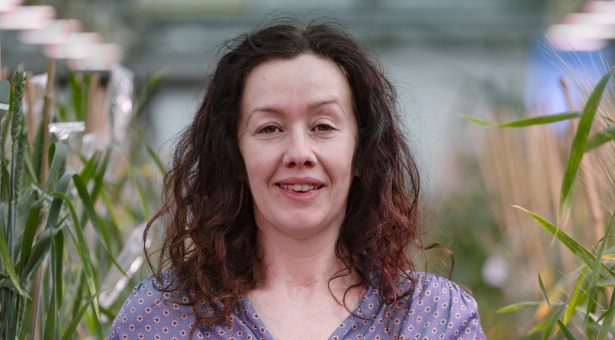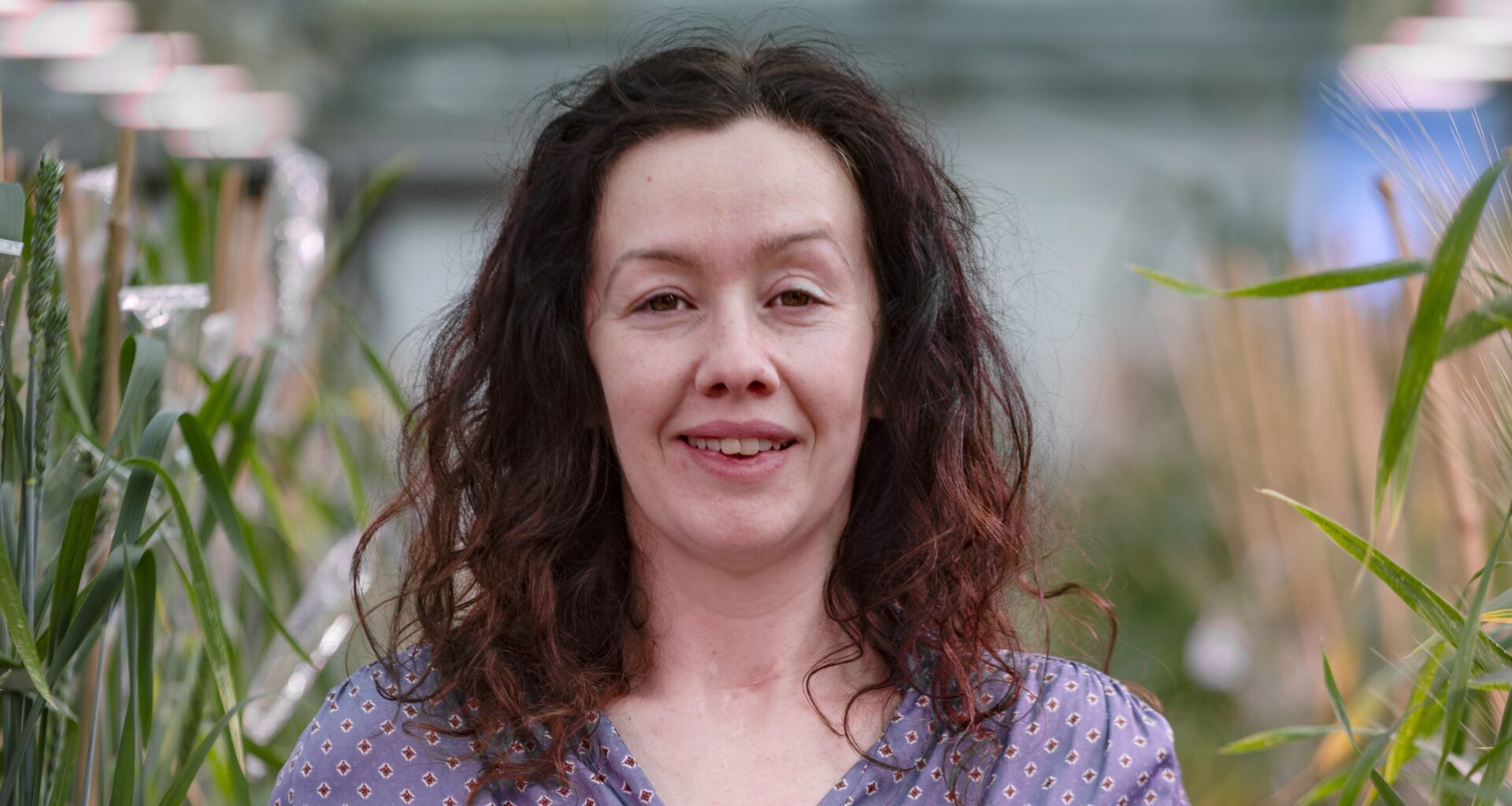
Dr Philippa Borrill, a group leader at the John Innes Centre, visited Italy recently to accept the Carlotta Award at the International Conference From Seed to Pasta V.
The prize is named after Carlotta Parisani Strampelli, a celebrated Italian wheat researcher and technician, who lends her name to three wheat varieties.
It recognises the pioneering work of women scientists under the age of 40 working on the genetics and genomics of wheat.
The 2025 award received by Dr Borrill recognises her contribution to wheat research including a significant paper by her group, published in April this year in the Journal of Experimental Botany
The study, of which Dr Borrill is corresponding author, investigates the potential of epigenetic variation, a new frontier in crop breeding which could help global efforts to make wheat more climate resilient and nutritious.
To mark the award Dr Borrill travelled to Bari, Italy to deliver a talk titled ‘Epigenetics as a new frontier for wheat improvement.’
“I was delighted to receive this award particularly as it recognises the role of female researchers in wheat, an area of research in which they are underrepresented,” said Dr Borrill.
Epigenetic variation, like genetic variation, can be inherited – influencing traits down generations. It differs from genetic variation on which crop breeding is traditionally based because it does not involve changes in the genetic sequence that makes up DNA. Instead, like punctuation and highlights in a text, epigenetic markers in the genome can influence how the genetic sequence is expressed, for example, by switching genes on and off in response to environmental triggers.
The study which won the award for Dr Borrill is influential because it explains how her group took advantage of wheat’s notoriously complex genome – so often in the past an obstacle to progress – to delve deep into the language of epigenetic variation.
Wheat’s polyploid genome has multiple copies of the same gene, so, unlike some other plants, it allows researchers to observe the effect on plants of reducing the number of copies of genes involved in epigenetic processes while still allowing the plant to live.
The Borrill group, focused on the gene MET1-1 which is important to a heritable epigenetic process in plant cells called DNA methylation – where chemicals are added to DNA and in doing so influence when the gene is switched on or off.
Previous studies had observed this effect in the model plant Arabidopsis thaliana, but effects of the gene had been difficult to study because techniques to remove or knock out the gene had resulted in the plants dying in other species.
Wheat, as a polyploid plant with six copies of each gene, allowed the Borrill group to knock out up to five copies of MET1-1 and observe a range of effects. Changes observed included a range of different flowering times and altered physical characteristics such as the development of awns, the bristles on the ears of wheat.
By producing the first epigenetic mutants of wheat – the Borrill group has potentially expanded the palate of options for breeders looking to create wheat varieties with traits that address higher yield, disease resistance and climate resilience.
“Working with epigenetic variation gives us additional flexibility to alter the genome and eventually plant characteristics,” explained Dr Borrill. “I’m delighted that the hard work of my group – and the potential of their discovery has been recognised and communicated to an international audience.”

